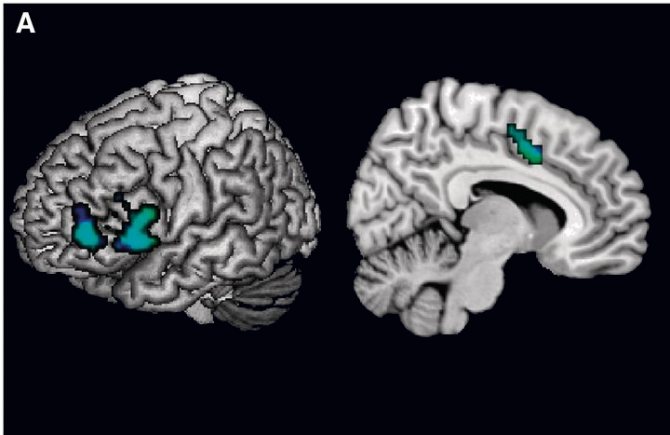Obsessive thoughts are persistent thoughts, ideas, images that are born in the human mind. Such thoughts seem to haunt a person, overwhelming him. This condition is also called obsession. Almost every individual has encountered the described phenomenon at least once in his own life. Many people, due to the accelerated rhythm of existence, believe in superstitions; they are always afraid of forgetting something, being delayed somewhere, being late somewhere. Often these experiences can be regarded as obsessive thoughts. At the same time, we can talk about an illness only when obsessions become excessive, cause psychological discomfort, cause mental anguish, and can often harm the environment. It is believed that insecure individuals with low self-esteem, increased anxiety, and haunted by constant fear are susceptible to obsessive states.
Obsessive thoughts:
What is this ?
Obsessive thoughts are those that are repeated over and over again and are almost impossible to get rid of. A person may understand that such thoughts are illogical, but this does not help at all to get ideas out of his head. Not all thoughts can be classified as obsessive (or, as psychologists call them, obsessive). Here are the main signs of obsessions:
- reflections cause discomfort, they oppress, provoke anxiety;
- I really want to get rid of such ideas;
- the person realizes that no one imposed these thoughts on him, they arose in his mind.
Many people choose to hide their obsessions because they feel shame or guilt for having such thoughts. Let's look at common topics that trigger obsessive thinking.
Dirt
This is the case when a person is terrified of becoming infected with something. Bacteria, viruses or even chemicals can all cause fear.
Aggression
A person is afraid of losing control, of doing something terrible in a state of passion. For example, a tired mother may see a picture of her throwing her baby out of the window. It frightens and makes you feel guilty. Although in fact the mother loves the child and in no case intends to harm him.
Danger
Familiar to many situations when it seems that you might have forgotten to turn off the iron, stove or lock the door.
Sex
Usually refers to people who were raised too strictly, considering sex as something dirty or a completely taboo topic. Also, such ideas may be rejected by a person who has experienced violence.
Physical disabilities
To one degree or another, every person pays attention to the shortcomings of his appearance. But sometimes it literally interferes with life. For example, a girl doesn’t like the shape of her lips. It seems to her that everyone is looking at them, considering them ugly, almost mentally laughing at them.
Blasphemous
This sometimes happens to believers. They are visited by thoughts that are categorically unacceptable in their faith, contrary to their worldview.
Do you recognize yourself in any of the points?
Even if not, this list of obsessions is not exhaustive. Let's understand further.
What is obsessional neurosis, and does it need to be treated?
The main goal of treatment is to maximize the patient’s quality of life. If a disease interferes with life, then it definitely needs to be treated. Does obsessional neurosis interfere with normal life? To understand this, you need to find out what is commonly understood by this term.
Obsession is the appearance in a person of thoughts or actions that are perceived by him as something alien. A person cannot get rid of them: obsessions force him to perform certain actions, thereby becoming the cause of debilitating mental discomfort.
Why do obsessive thoughts occur?
Obsessive thoughts have specific reasons. If previously a person mainly received information through personal communication with other people, now there are even too many sources of news: TV shows, social networks, online communication... This all provides a lot of food for thought.
How to determine the moment when a thought becomes obsessive?
And why does this happen?
Moral injury
If a traumatic situation occurs, a person then experiences anxiety. Sometimes this goes away soon, but in some cases the obsessive thoughts do not subside. The person fears that undesirable situations will arise that will again traumatize him.
Internal dialogue
Probably, many have noticed that they are constantly talking about something, thinking through options for different situations, as if conducting a dialogue with themselves. This is normal up to a certain point.
If you think about a person who is long overdue to be forgotten, this is already obsessive thinking.
The girl can’t stop thinking about her ex-boyfriend, she thinks about what would have happened if she had behaved differently at some moments. Or a person who was fired spends months wondering what would have happened if things had turned out differently.
Beliefs
Some people in difficult situations constantly ask themselves questions and look for answers to them. They think about their life principles and confirm for themselves that they are correct. You get tired of such constant thinking. If left unchecked, it can lead to anxiety.
Can't tell if your thinking is okay?
Don’t worry, now we’ll look into it in more detail.

Predisposing factors

The picture shows the areas of the brain that are responsible for a person’s internal monologue and the activation of obsessive ideas and thoughts. The more intensively this area functions (as in the left picture), the more prone a person is to internal experiences, which can ultimately develop into obsessive-compulsive disorder.
Obsessive-compulsive disorder can occur for a variety of reasons, although scientists have not yet found an exact explanation for the etiology of this phenomenon. To date, there are only a few general hypotheses about the origin of the pathological condition. Thus, according to biological theory, the causes of obsessions lie in the physiological or atomic characteristics of the brain and the autonomic nervous system. Obsessions can arise due to disturbances in the exchange of neurotransmitters, serotonin, dopamine, etc. Infectious and viral diseases, other physical pathologies, and pregnancy can provoke an increase in obsessive states.
Genetic predisposition is also a factor that can provoke the described mental disorder. As confirmation of this theory, one can cite studies conducted with identical twins, who equally had signs of the disease.
Obsessive thoughts, according to the psychological hypothesis, are a consequence of certain personal characteristics that could be formed under the influence of family, society, etc. Possible reasons for the development of this mental disorder may be low self-esteem, the desire for constant self-abasement, as well as, on the contrary, inflated self-esteem and the desire to dominate. Most often, problems with self-esteem are subconscious.
Any hidden fears can manifest themselves in the form of obsessions if a person lacks self-confidence. The lack of clear priorities and goals in life can lead to the fact that obsessive thoughts become a way to escape from reality or are considered by the patient as an excuse for their selfishness and irresponsibility.
Symptoms of obsessive thinking
Obsessions provoke anxiety. The brain perceives this situation as a threat to the body and reacts accordingly. This manifests itself both externally and internally.
External symptoms:
- pale or red skin;
- heart rhythm is unstable;
- nausea;
- dizziness;
- intestinal problems.
Internal symptoms:
- feeling shame or guilt;
- phobias arise;
- a person behaves more aggressively with loved ones;
- I want to do something bad, but usually it doesn’t come to fruition.
These are not all possible symptoms. But it is already clear that obsessions are a rather unpleasant thing, leading to bad consequences. If you don’t understand yourself and continue to repeat the same thing in your head, not only anxiety can arise.

Consequences of obsessions
Obsessive thoughts can lead to neuroses and mental disorders. Obsessions often arise due to overexertion. This causes anxiety, chronic fatigue, neuroses and other problems. Over time, obsessive thinking can provoke:
- problems with the gastrointestinal tract;
- addictions (from food, alcohol, drugs, others);
- excess weight (may appear due to the fact that a person begins to eat a lot or due to increased production of cortisol, a hormone that can slow down metabolism due to stress);
- problems with the reproductive system (the menstrual cycle may be disrupted, as well as potency may decrease);
- decreased immunity, which causes colds and other diseases to occur more often;
- depression, as a result of which a variety of problems arise, such as complexes, phobias, or even an unwillingness to live.
As you can see, obsessive thoughts, which at first glance may seem relatively harmless, can actually lead to big problems. Therefore, you need to be able to get rid of them in time.

Examples of obsessional neurosis
It is very easy to explain the essence of this phenomenon with examples. Let's say you believe that you shouldn't look in the mirror before leaving the house. However, if you accidentally look in the mirror, you will still leave the house without giving it much importance.
Or, for example, a black cat on the road will not force you to reschedule your business: you may be a little worried, but you will soon forget about it. A person with compulsive obsessions, looking in the mirror, will bolt the door and stay at home all day, and, having met a black cat, go to the pharmacy for sedatives.
As you can see, obsessional neurosis makes the patient’s life very difficult. This means that we can say confidently and definitely: this disease definitely needs treatment, and the treatment must be professional and complete.
Ways to fight
Consider the need to deal with obsessive thoughts and fears.
If an obsessive state is just beginning to develop, you can try to get rid of it yourself.
To do this, take the advice of psychologists.
Stop fighting
To deal with depressing thoughts, simply stop fighting them.
Sounds contradictory?
Perhaps, but that's true. Let's explain now.
The harder a person tries to throw unpleasant thoughts and fears out of his head, the deeper they take root.
A person devotes more and more energy and time to this, only aggravating the situation. Shift your focus. Instead of “not thinking about it,” focus on “thinking about something else.”
Switch
Your life is filled with a lot of different routine activities. They are usually performed mechanically, without thinking. Focus on each individually. Don't jump randomly between them. Maybe what you have been doing all the time can be somehow changed in the direction of reducing the time spent performing useless movements. This will give you extra satisfaction in self-assessing your analytical abilities. Train yourself. For example, we remembered that there were previously unfulfilled and postponed tasks or tasks.
Think about tasks, remember pleasant situations from the past that brought you a feeling of satisfaction when completing them.
Postpone obsessions until later
This advice is for those who have become fully aware of obsessive thoughts and have accepted them. Now all that remains is to make sure that this doesn’t bother you all the time. To do this, just put off thinking until later.
Allow yourself to rest from obsessive behavior for most of the day.
But set aside about half an hour to completely dedicate to thinking about what’s bothering you. At this time, think through the situation, analyze it up and down, don’t be shy about your thoughts, don’t try to escape from them. This is the point: you acknowledge the obsessive situation, but do not completely immerse yourself in it. You agree with yourself that you will definitely reflect on what is happening, but not now. This will allow you to calm down and go about your business without thinking about disturbing moments. At the same time, those half an hour allocated to analyze the situation can help you understand yourself and find a suitable solution.
Just act strictly according to the plan, remembering to both be distracted and reflect on the problem within the promised period.
Otherwise, it is unlikely that the desired effect will be achieved.
Take a break
Observing a dynamic process is what you need to distract yourself. At such moments, the brain believes that the rest is not so important.
Have you noticed the calmness caused by sea waves or the flames of a fire?
As a rule, obsessions at this time release us, allowing us to fully enjoy the moment.
A resort is often an ideal option in such situations, because usually nature itself is very calming.
But even if there is no such opportunity, it is also quite possible to get distracted in the city. Just watching the series, if it really captivates you, also helps a lot.
Get creative
Creativity is a good way to remove unnecessary thoughts from your head. Try to convey your feelings on paper. You can feel like a writer and express everything in words.
Or draw something that worries you.
Or you can sculpt it from plasticine.
It doesn't matter if you have any creative ability. The main thing here is to try to portray unpleasant thoughts as accurately as possible. Now all that remains is to get rid of it. Just destroy what you wrote (drew, sculpted). Tear, burn, trample or simply throw away. At this moment, there is a feeling of relief that you have gotten rid of the negativity. This method is designed to hit the target exactly. But creativity can have a positive impact on our moral well-being without having to get rid of the results of our labors. Creativity can become a favorite hobby, which will be great to distract from gloomy thoughts.
Think about what you could do?
What would bring real pleasure?
Do not rush to deny and say that you have no inclinations for creativity. Everyone started somewhere. Moreover, we are not talking about making money from this. In this situation, talent would definitely come in handy. But if you want to find something to do for your soul, you can start from scratch and develop your abilities.
Do you like to dance in a club?
Try going to a dance studio and learn this art.
Don't think that if you're not a teenager anymore, it's too late to learn.
Nowadays there are often a lot of adults in dance schools.
Do you dream of drawing beautifully, but after lessons at school you understand that even with a teacher it’s unlikely that anything will work out?
Try painting by numbers.
It's like children's coloring books, but bigger, more mature, more beautiful. You will paint on a real canvas, and then you can hang your creation on the wall to admire the result. You can describe a variety of creative activities for a long time, but the main thing is to catch the essence. Such hobbies will help not only get rid of anxious thoughts, but also make a person happier in general.
Look for benefits
As we have already said, obsessive thoughts syndrome does not just happen. Anxious thoughts may arise from problems that you have not solved, but they continue to bother you.
Perhaps it's time to seriously think about your life, analyze what worries you so much, change something?
Typical situations: a relationship with an unsuitable partner, a boring job, or even toxic friends.
Take it to the point of absurdity
What do you think we recommend this time?
Laugh! Imagine the situation you fear. For example, you met a young man and are going on a date with him. You are frankly afraid that something will go wrong. Now let's not spare the colors and mentally bring the situation to the point of absurdity. Here you are, so beautiful, walk into a restaurant, go to a table where a guy is waiting for you... You stumble and fall. Everyone in the room, including your potential lover, starts laughing.
What will you feel initially?
Annoyance, resentment. Now replay the situation in your mind again. And again, and again. At some point you will start laughing along with everyone else. Most likely, now you will go on a real date with a completely different attitude - easier, more positive.
Mentally destroy the obsession
We've reached the last technique that will help you cope with obsessive thoughts on your own. This will require a minimum of time and a little imagination.
- Take a comfortable position, close your eyes. Breathe deeply. As you inhale, imagine that you are inhaling courage, and as you exhale, imagine that you are exhaling fear. Focus on this process and how you feel. This will allow you to relax and calm you down.
- When you notice that the tension has decreased, imagine an obsessive image. Now surrender to the power of fantasy, let it destroy this image in any way.

Psychotherapy
If a person cannot cope with the situation on his own, it’s time to turn to a psychologist or psychotherapist. A specialist will be able to look at the situation from the outside, assessing it objectively. We are often used to solving problems ourselves, and we also like to consult with friends. But friends cannot always help, because their knowledge of psychology is usually not enough. The other side of the coin is that a friend will not always tell the truth about what he thinks about your situation. Perhaps he will be afraid to offend you or will be afraid that your communication may change after all the frankness. Such problems will not arise with a specialist.
A professional will be able to get to the bottom of it, understand what is happening in your situation, and how to deal with it.
Ideally, the whole family can attend the consultation. After all, the environment influences a person; often the causes of anxiety lie in the nuances of relationships with loved ones. Of course, it is not always possible and willing to involve the entire family in their problems. Even if you go to a specialist yourself, this can also be of great benefit.









